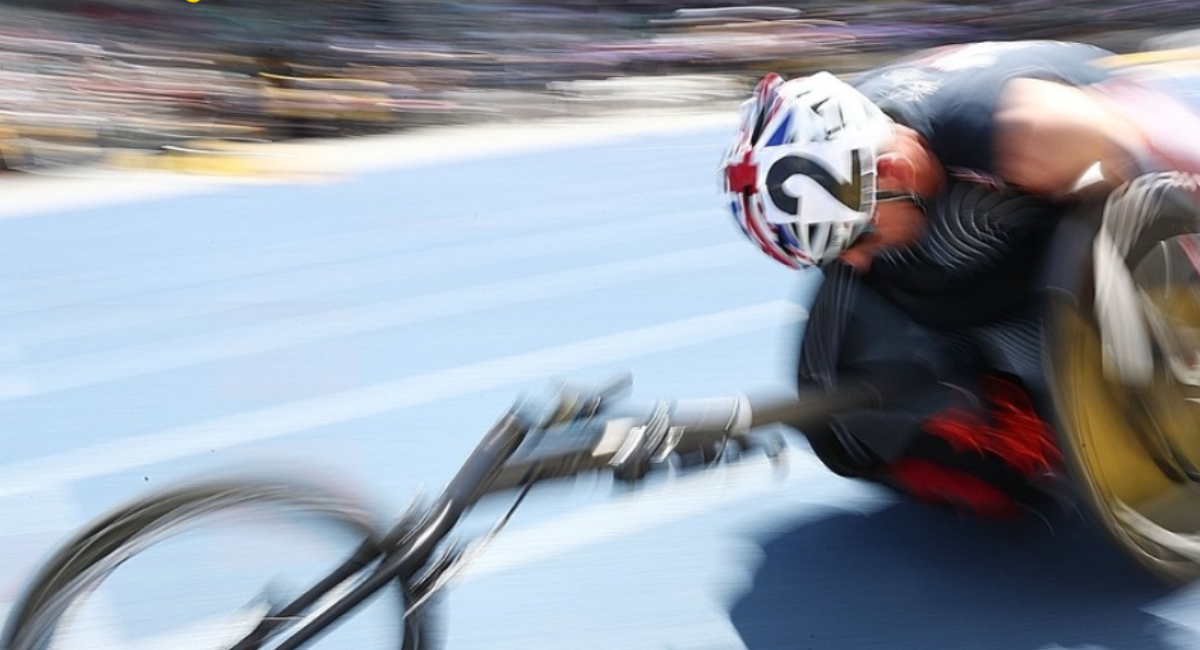The evaluation of competitors and non-competitors is the first study on the long-term benefits of international competitive sports in wounded, injured and sick serving and former personnel.
Competitors in the Invictus Games Sydney 2018 experienced greater positive impacts on their wellbeing compared to non-competitors, according to new research funded by Forces in Mind Trust. The research highlighted the importance of the “between Games” activities to maintain health and wellbeing levels and found that the strategies that provide the most benefit were centred more on mental fitness skills and resilience training than on sports development.
Research during the preparations for the Invictus Games The Hague 2020 found that adapted sports, such as virtual cycling, continued to provide community and resilience training that underpinned rehabilitation during the COVID-19 pandemic.
The evaluation of Invictus Games competitors - who are all wounded injured or sick serving or former personnel was carried out by an international collaboration of academic researchers including Imperial College London.
The report is being launched today at the IGF Conversation, as part of the Invictus Games Foundation’s 10th Anniversary celebrations.
Impact of competitive sport
Those participants who trained for a competitive sports programme demonstrated greater health and wellbeing outcomes, when compared to non-competitors across most areas, with researchers suggesting a “Games Effect”.
There were also benefits for those who trained and did not compete, due to access to resources such as sports camps, , and selection trials However the biggest improvements in health were seen amongst Invictus Games competitors, compared to those who trained, but did not compete.
The research found that the best outcomes often came from focusing on mental fitness skills through resilience training delivered alongside physical training. It also highlighted the importance and positive impact of transformational leadership within the coaching staff in enabling individuals to gain maximum benefit in their personal journeys of recovery and rehabilitation.
COVID-19 Pandemic and esports.
During the pandemic, participants could not train or compete physically together, which negatively impacted on post-traumatic growth. Those participants who were most affected by the pandemic frequently identified the effects of isolation as a driving force.
However, the pandemic saw development in active esports such as virtual rowing and cycling competitions, which allowed continued community engagement and improved health outcomes. The report identified a cohort amongst the Invictus community which actively embraced these opportunities and as such gained significant benefit during the overall environment of the pandemic.
Recommendations
The evaluation had several recommendations to inform future programme development for the Invictus Games and other competitive sports rehabilitation programmes.
- Implement resilience training as part of sports-based rehabilitation programmes.
- Broaden sports programmes to support non-competitors.
- Sports programmes should be tailored to each participant especially in regard to the type of illness or injury they are experiencing.
- Implement transformational leadership into coaching techniques.
In all, the report identified 71 best practice strategies that can support quality participation and outcomes in military sport recovery programming.
To view the full report, click here.
We are delighted to share this report after a long time in the making. We are grateful to Forces in Mind Trust for supporting this work. And particularly for their flexibility in extending the report grant during the pandemic. The findings from that period certainly help paint a picture of how sport and esports kept the community together through their recovery at that time.
These findings have been shared with our community of participating nations to develop ongoing programming. We are determined to continue building on the lessons learned to ensure that best practice is shared for the international wounded, injured and sick service personnel and veteran community. We’ve strengthened our provision of activity beyond the Games based on some of these findings. And we look forward to doing more in this space.”
Dominic Reid OBE Chief Executive Officer, Invictus Games Foundation
“Recognising the specific appropriate support wounded, injured and sick serving and former personnel require as they transition to civilian life is crucial. Competitive sports have helped many to recover and reclaim their identity beyond their injury. This research provides solid evidence that shows the benefits of these programmes, whilst providing valuable best practise and examples that will improve how we help Service personnel in the future.”
Michelle Alston Chief Executive of Forces in Mind Trust
To view the full report, click here.

